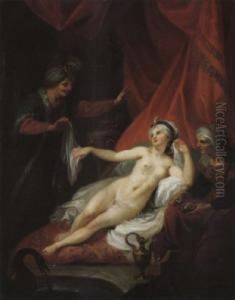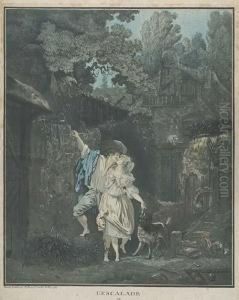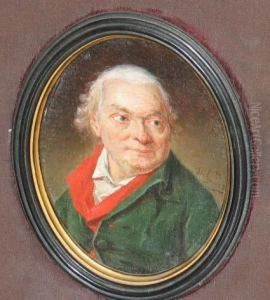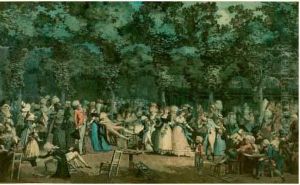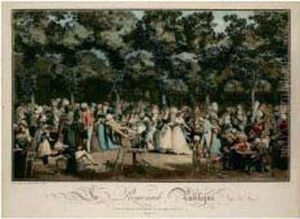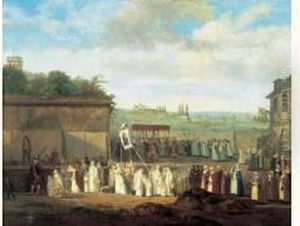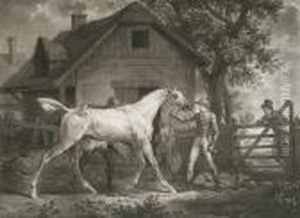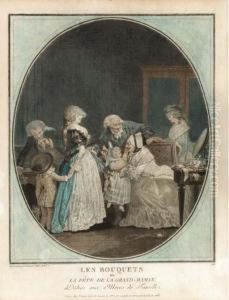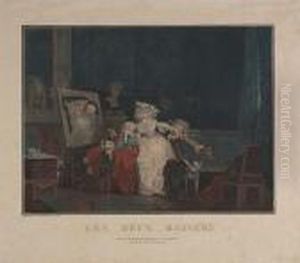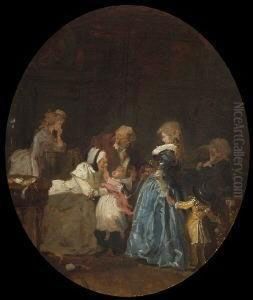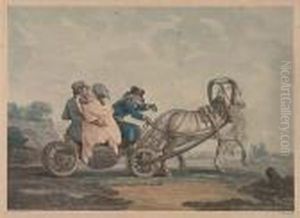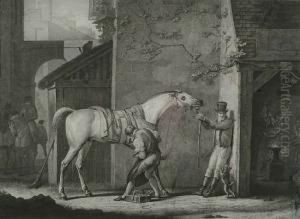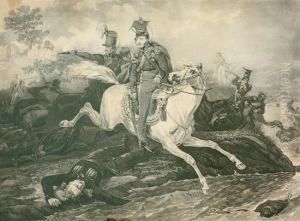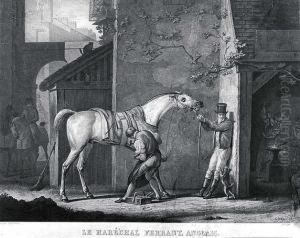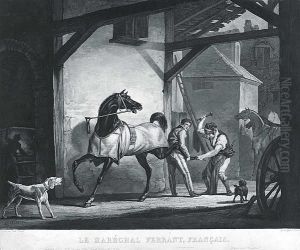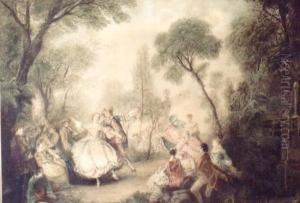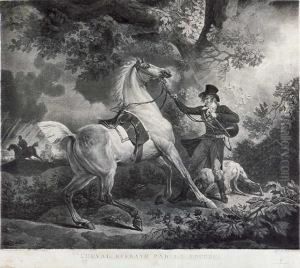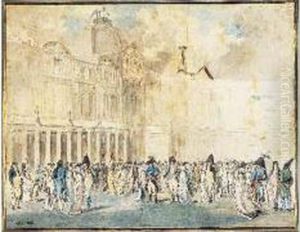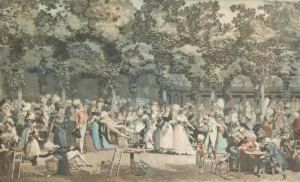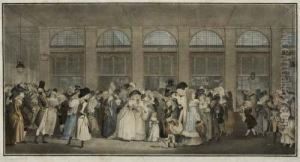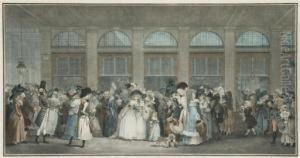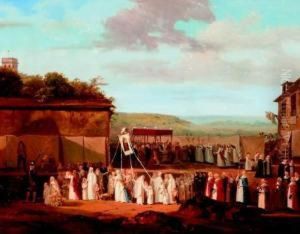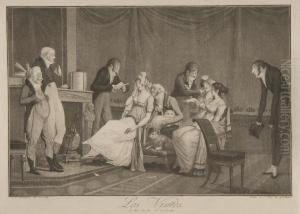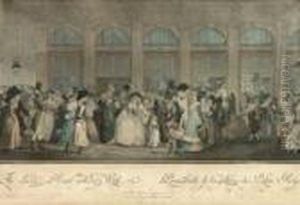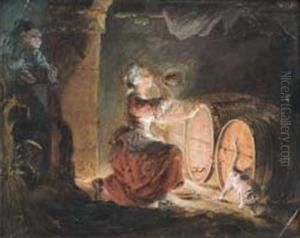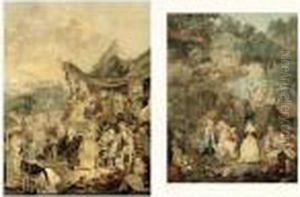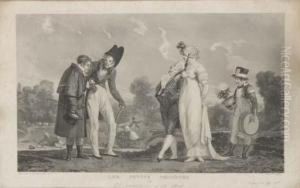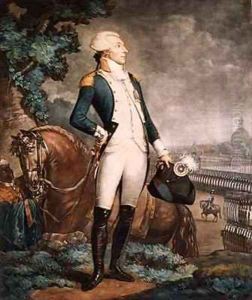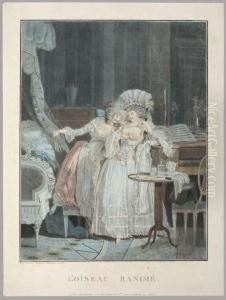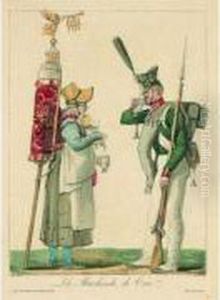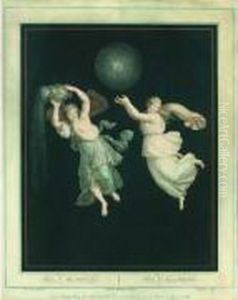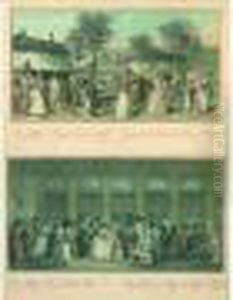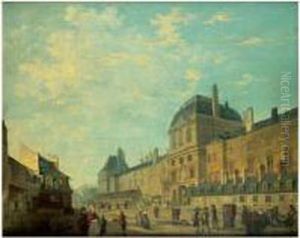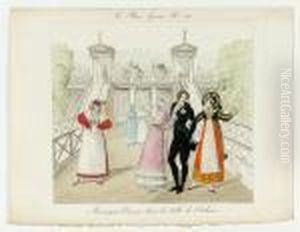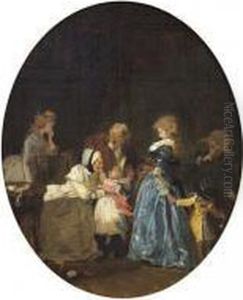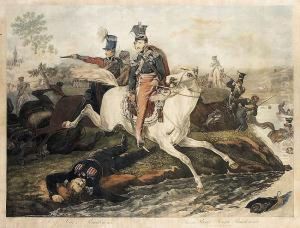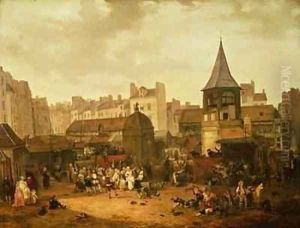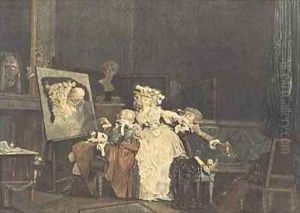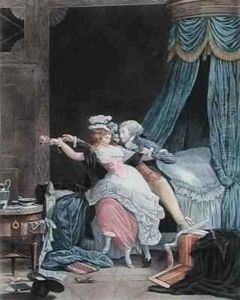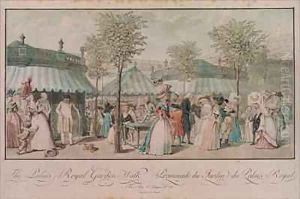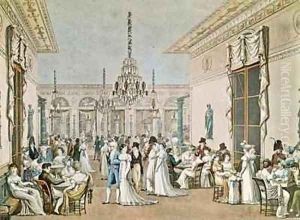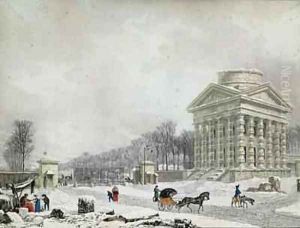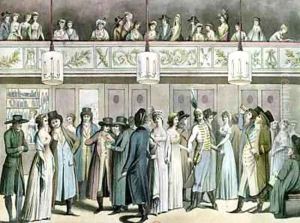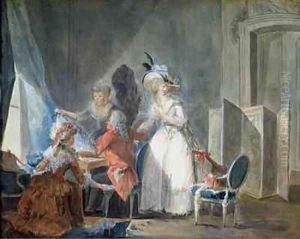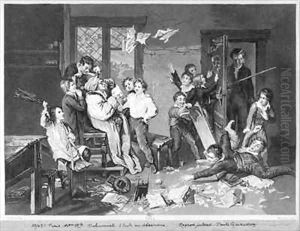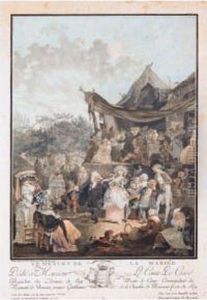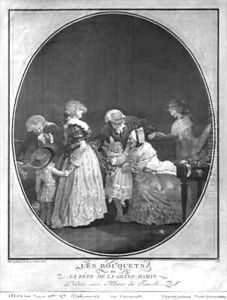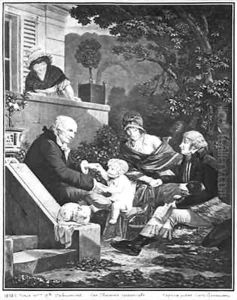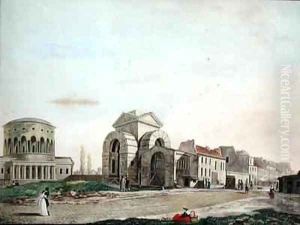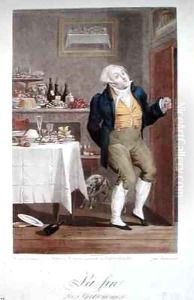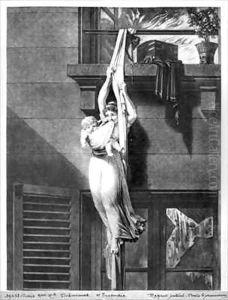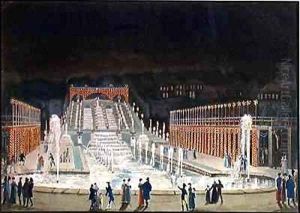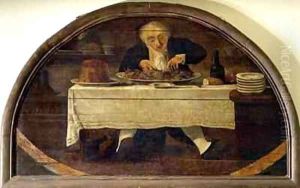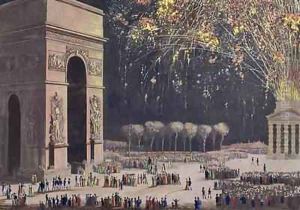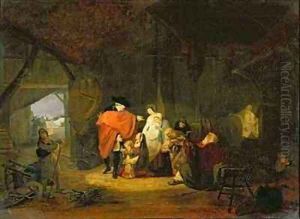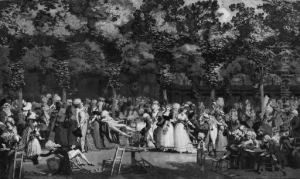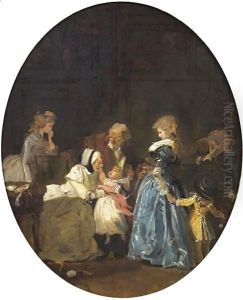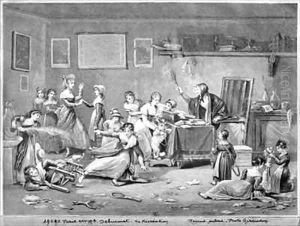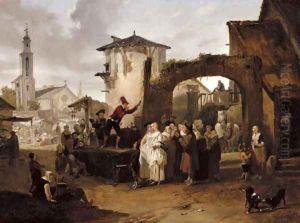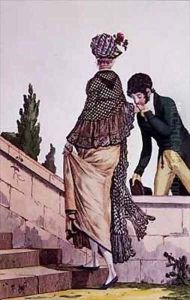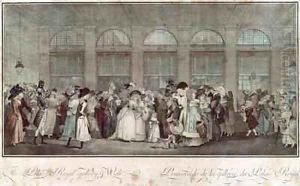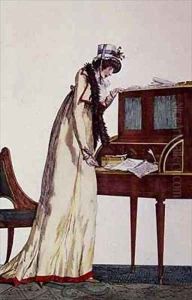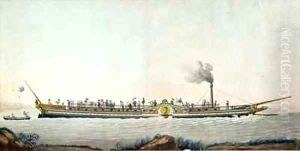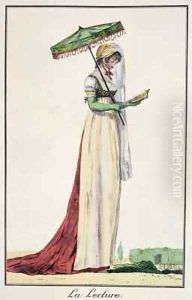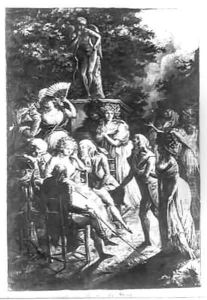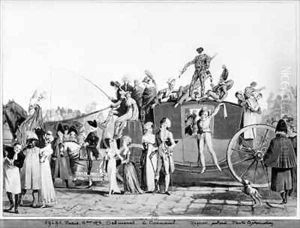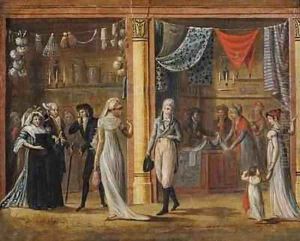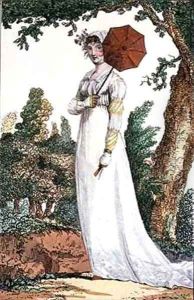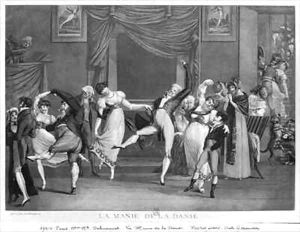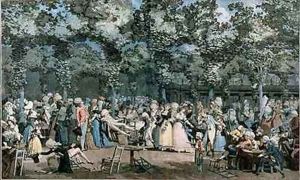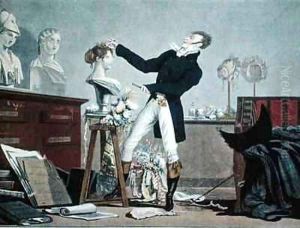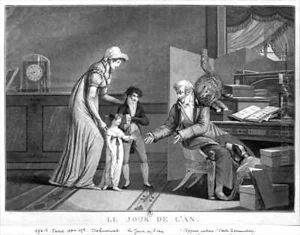Philibert-Louis Debucourt Paintings
Philibert-Louis Debucourt was a French painter and printmaker, born on February 13, 1755, in Paris. He is best known for his fine stipple engravings and aquatints, which captured the nuances of color and the texture of the subjects he portrayed. Debucourt's work is often associated with the French Rococo and early Neoclassical styles, and he was active during a time of significant social and political change in France, including the French Revolution and the Napoleonic era.
Debucourt initially studied under the painter Jean-Baptiste Le Prince, but his career was primarily shaped by his skills in printmaking rather than painting. He exhibited at the Salon for the first time in 1781 and continued to be a regular exhibitor there for many years. His early works included genre scenes, often with a humorous or satirical bent, and he later produced more sentimental and romantic images that were popular with the public.
During the 1780s, Debucourt developed a particular interest in the aquatint process, which allowed him to create prints that resembled watercolor paintings. One of his most famous series of prints is 'Les Modes Parisiennes,' which depicted contemporary Parisian fashion and social scenes with remarkable detail and sophistication. His work provides a vivid documentation of the lifestyle and attire of the French bourgeoisie during a period of pre-Revolutionary prosperity.
However, Debucourt's career was not without challenges. The political turmoil of the French Revolution had a profound impact on the art market, and Debucourt had to adapt to the changing tastes and political sentiments of the time. He produced a number of patriotic prints that reflected the revolutionary spirit.
After the Revolution, Debucourt continued to work and achieved considerable success. He was appointed the director of the Louvre's Chalcography workshop in 1804, a position that involved the production and preservation of prints for the museum's collection.
Debucourt's later years saw a decline in his popularity, as the art world's interests shifted toward Romanticism and away from the classical and lighthearted subjects he favored. Nevertheless, his contributions to printmaking, particularly in the realm of color printing, were significant, and his works remain a valuable resource for understanding the culture and fashion of late 18th-century France. Philibert-Louis Debucourt passed away on September 22, 1832, in Belleville, which is now part of Paris.
